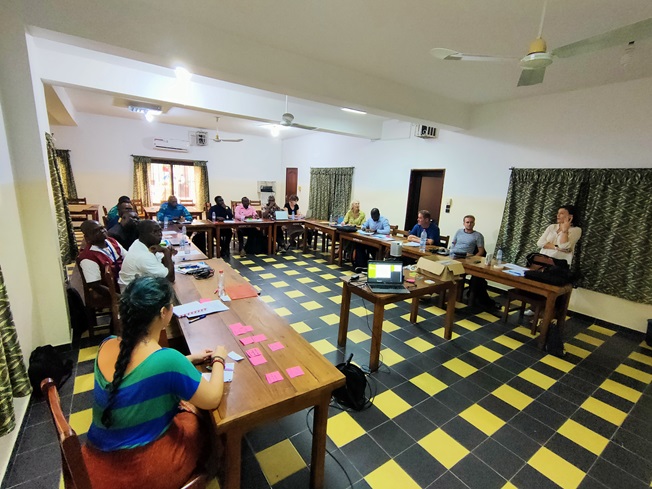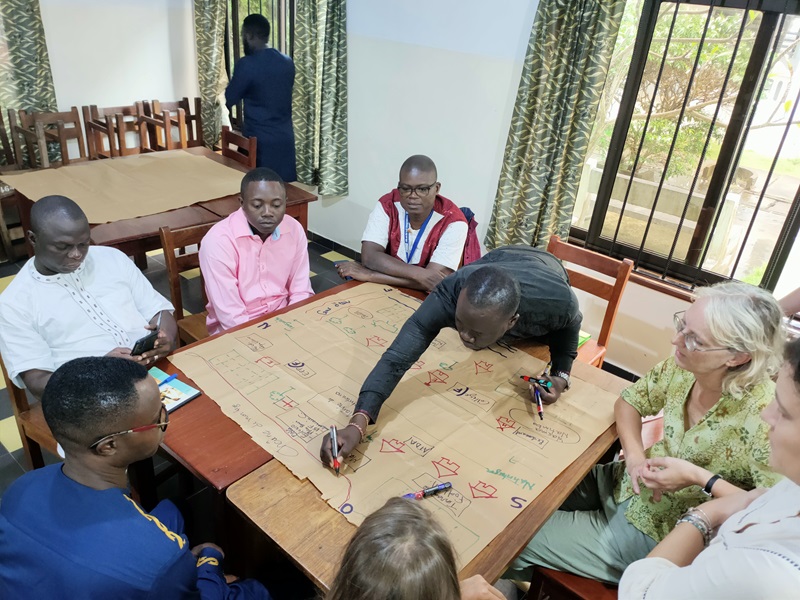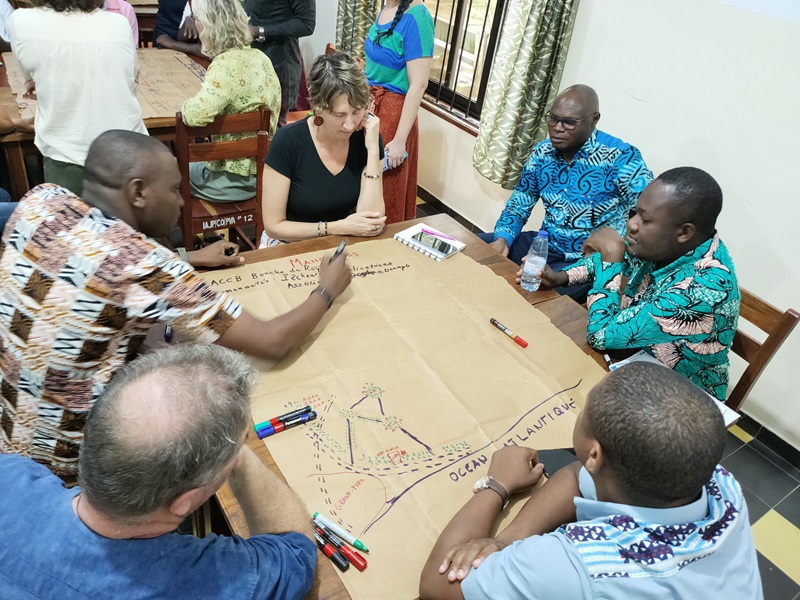SECORES and the Joint Strategic Framework of Benin organized a workshop on social-ecological resilience (SER) in Cotonou (Benin) on 17 October 2023 with 14 participants from 8 organizations.

The workshop started with an introduction on resilience using a post-it session questioning the participants about (a) ‘What is resilience?’; (b) ‘What is socio-ecological resilience?’; and (c) ‘What are ecosystem services and which ones are relevant to your work?’.
After presentation of key concepts and how SECORES translated them in their theory of change, some possibilities to measure SER were discussed. Join for Water explained its activities on resilience, with local institutions. They choose to focus their resilience indicator on the DPSIR approach, with an emphasis on the resilience linked to their interventions.
CEBioS explained the ‘Toolkit for the Indicators of Resilience in Socio-ecological Production Landscapes and Seascapes’. This tool seems to be of interest to the participants for application in the field, with local communities.
To better understand and apply the concepts, 2 groups were formed: one working on a village and the rural context of Atacora; the other on the Bouche du Roy mangrove ecosystem. Three main questions were discussed:
- Resilience of what? Description of the chosen system considering scale, communities, key stakeholders, natural areas, ecosystems, other important elements (key infrastructures, …), …
- Resilience to what? Identification of the stresses and shocks affecting the socio-ecological system
- Resilience through what (how)? Identification of the elements that contribute to increasing or decreasing resilience (vulnerability) distinguishing
- natural factors (access to and management of ecosystem services, conservation, restoration)
- human factors (rights, practices, organisations)
- institutional factors (policies, management strategies, governance)
Conclusions of the workshop
- The resilience approach allows us to take the social aspect into greater consideration.
- There is an important link with empowerment, SER is part of what we want to achieve, increasing the ability to cope.
- Opportunity to share between people active in programmes.
- Opportunities for action, for transforming difficulties into ecological opportunities.
- Resilience is often dealt with through sustainable practices and capacity building, but its measurement is never addressed (e.g. existing tools).
- Follow-up: sharing of future work on tools and information.
- SER can be subject of a potential learning trajectory.


